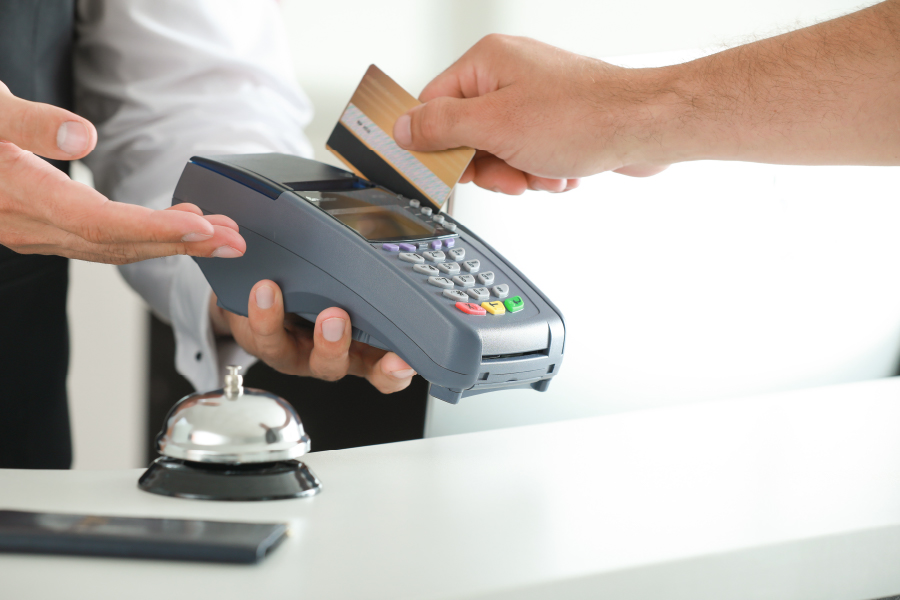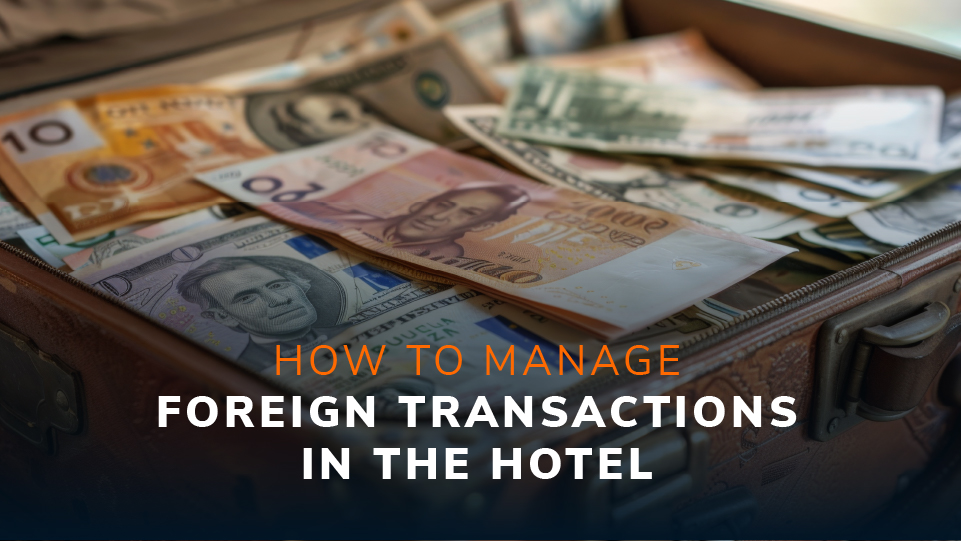Dear WuBookers,
if your clientele comes from abroad, they are likely to expect-or have asked you-to pay in their currency instead of yours.
An option that can be supported by both electronic payment terminals (POS) and online reservation systems.
The benefits for the customer are obvious, but what are the benefits for the hotel? And, in general, how to handle foreign currency transactions on online channels?
The benefits of multi-currency management for the hotelier
Let’s say the case of a hotelier in Argentina who, in addition to local dollar rates, also wants to show the corresponding U.S. dollar rate. Or even enable dual-currency payments. An opportunity that offers several advantages:
- transparency: showing prices in one or more currencies in addition to the local currency will help customers make comparisons and consider costs well, creating trust from the start. One aspect can also be particularly interesting for the business segment, as it makes accounting for expenses much more immediate;
- streamlined purchasing process: the online shopping experience should be as smooth as possible, and the multi-currency option can contribute significantly to making all the steps straightforward and seamless;
- loyalty: a satisfied guest is more likely to return. Customer loyalty is a mechanism that is built from the first contact, making every transaction, including online reservation, easy;
- Reduction in disputes: a consequence of the previous points is a decrease in possible disputes arising from misunderstandings about the rate and cost of services;
- Distinction from competitors: enabling payments in the guest’s currency can help the property stand out from others in the market and put it on par with other international properties, attracting a wider audience.

Getting even more down to the practical side, we can identify concrete benefits such as automatically updated exchange rates frozen at the time of sale . A function that is usually enabled directly by the system adopted to manage multiple currencies and that reduces manual errors and time spent in accounting.
The hotelier can also decide to customize his site by adding languages and currencies without the need for additional separate domains: it will be up to the user, at the beginning of his navigation path, to choose the combination he prefers.
Managing multi-currency transactions with a hotel PMS
So, how to handle foreign currency transactions on one’s online sales channels? With a hotel PMS that supports the necessary functionality.
Zak, WuBook’s management software for hospitality properties, handles all legally recognized currencies and provides efficient solutions when it comes to both direct reservations and reservations from OTAs.
Multi-currency direct reservations thanks to Zak’s Booking Engine
Through Zak’s Booking Engine reservation system, the hotelier can activate two alternative or complementary modes.
The first allows those booking through the site to view and choose a currency other than the hotel’s currency. If this option is not activated, the customer will see the prices and can finalize the reservation only in the currency set by the property.
The second mode, on the other hand, makes it possible for the guest not only to view the price in a different currency, but also to complete the reservation in that currency.
If only the first (display) and not the second (reservation) is enabled, then the user will be able to see the rates in their own currency but purchase the accommodation only in the hotelier’s currency.

Actual transactions are handled by payment gateways such as Stripe, Nexi, PayPal, and so on: platforms that guarantee the reliability and security of the transaction, while complying with current privacy regulations.
The multi-currency management service may incur an additional cost for the hotelier, and if this results in surcharges for guests, the hotelier is required to notify travelers through personalized messages within its Online Reception, namely the virtual environment dedicated to reservations.
Currency conversion rates are automatically calculated by Zak by drawing from dynamic databases available online and updated several times a day as markets evolve. Of course, when a new reservation is created, the system applies the exchange rate at that time and the price for the customer is frozen.

Creating multi-currency listings for OTAs
What about when the sale takes place on online distribution channels, such as OTA sites? In this case, it is necessary to set the sales currency directly on the portals.
But Zak has a feature that further facilitates property managers and hoteliers. Within the PMS, in fact, it is possible to create derivative rates that use updated exchange rates as the transformation factor. This makes it possible to create a price list that automatically converts prices of one currency (e.g., Argentinian dollars, to return to the hypothetical above) into those of another (U.S. dollars).
By doing so, through the Channel Manager, you will be able to adopt the price list you prefer for each OTA, without having to worry about doing the currency exchange manually.
Enabling foreign currency transactions provides numerous benefits and, when supported by the right tools, facilitates transactions and reservations for hoteliers and customers, to the satisfaction of both.
